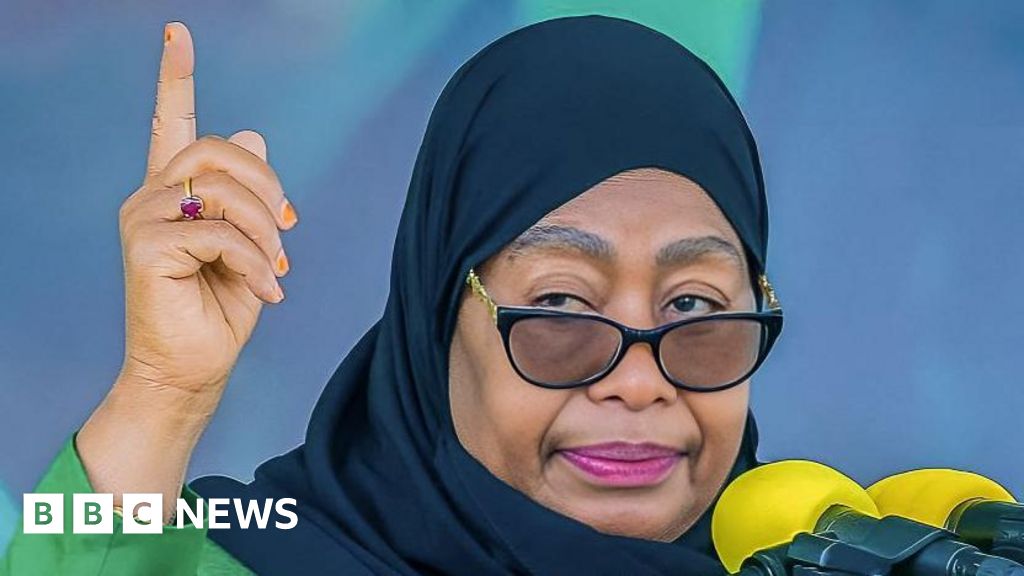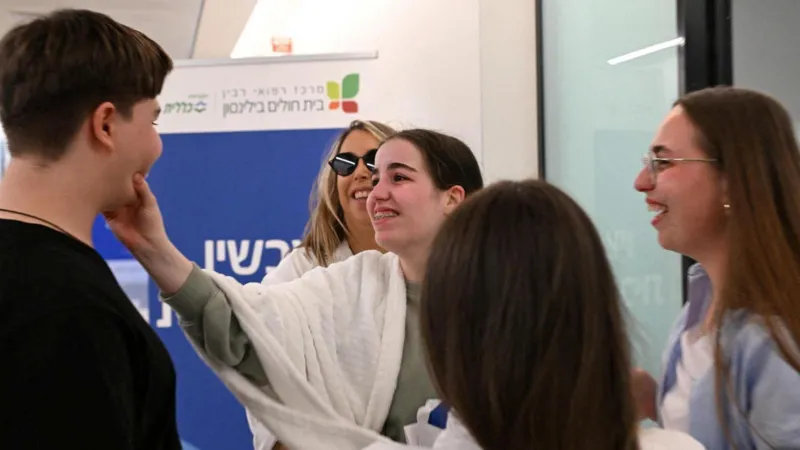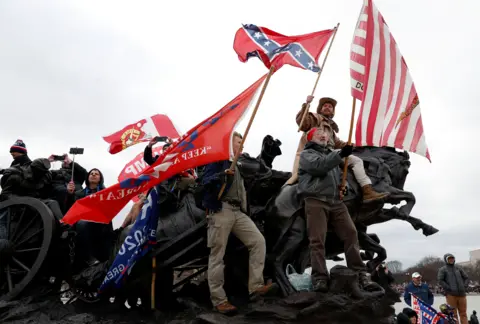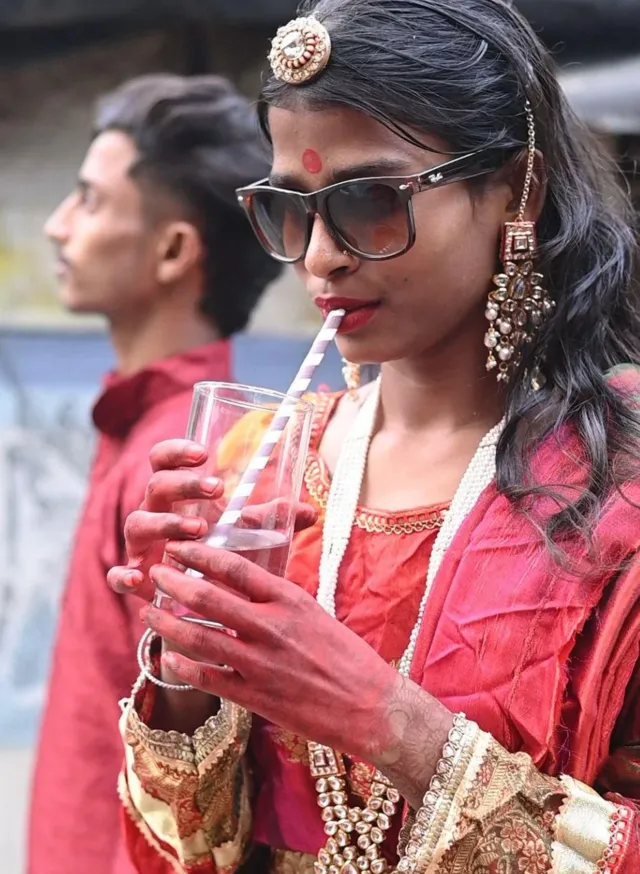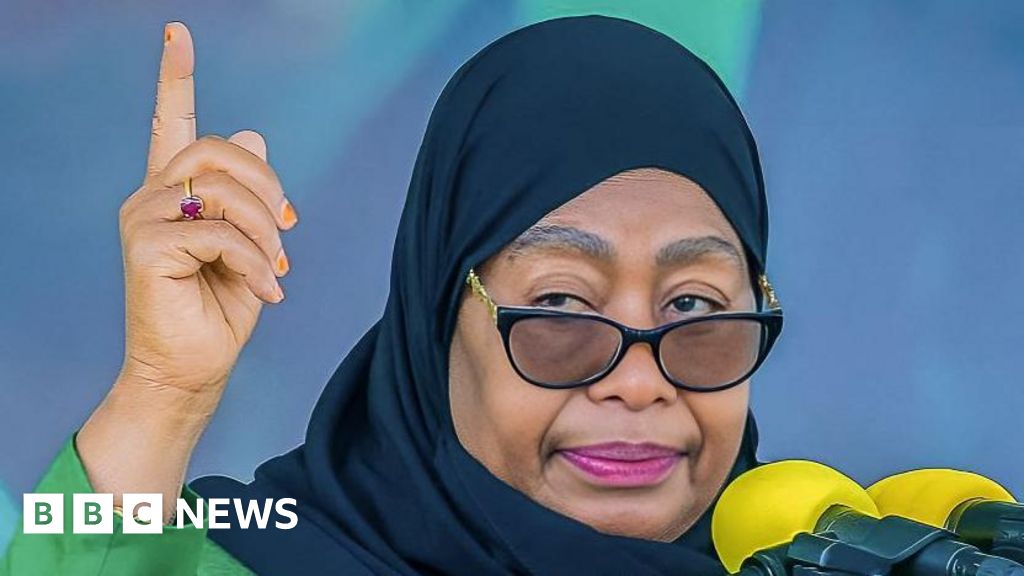
Tanzania’s President Samia Suluhu Hassan has announced an official investigation the unrest that broke out during election week, following accusations that her government was responsible for violently crushing historic protests.
She was declared the winner of last month’s presidential poll with 98% of the vote – a result the opposition has denounced as a “mockery of democracy.” At least 240 people were charged with treason after the protests.
As well as the commission of inquiry, President Samia has also asked prosecutors to “show leniency” towards those arrested in connection with the violence.
Quoting the Bible, she said: “Father, forgive them, for they know not what they do.”
Her remarks come just days after the UN High Commissioner for Human Rights, Volker Türk, urged Tanzanian authorities to conduct a full and transparent investigation into reports of killings and other serious human rights violations during and after the 29 October elections.
Hundreds may have died in post-election unrest, according to the opposition. The authorities are yet to release an official death toll.
The violence was shocking for a nation that had cultivated an image of calm, consensus and order for nearly six decades.
During an address to parliament on Friday, President Samia urged prosecutors to consider reducing or dropping charges for individuals who may have been swept up in the unrest without fully understanding their actions.
“I am aware that many young people have been arrested and charged with treason. They did not fully understand what they were getting involved in,” she said. “As a mother and guardian of this nation, I am directing law-enforcement agencies, especially the DPP’s office, to show leniency.”
Samia also called on political parties to meet and discuss how to conduct politics without causing harm to the country. She reaffirmed her commitment to initiating a new constitution-making process.
The protests, organised by young people, drew clear parallels with global Gen Z-led mobilisations against entrenched leadership and unresponsive governments.
Analysts say while the unrest was unprecedented for Tanzania, it was preceded by a tense political climate – marked by stalled reforms, years of simmering youth anger, power tussles within the ruling party and the sustained persecution of opposition leaders.
In the months preceding election day, the CCM government worked to systematically eliminate any credible competition, according to analysts.
The two main opposition leaders were blocked from standing in last month’s poll – Tundu Lissu is in detention on treason charges, which he denies, while Luhaga Mpina’s candidacy was rejected on technical grounds.
During her first term in office, Samia’s approach to leadership had been initially admired both at home and abroad as she allowed opposition parties to organise rallies and criticise the government without the fear of grave repercussions.
She had pledged to re-open Tanzania to the world through her “4R” doctrine – reconciliation, resilience, rebuilding and reform.
But months to the election, a wave of abductions, arrests and the brutal killings of opposition members gripped the country, shattering hopes for reforms and reconciliation.
Additional reporting by Natasha Booty
